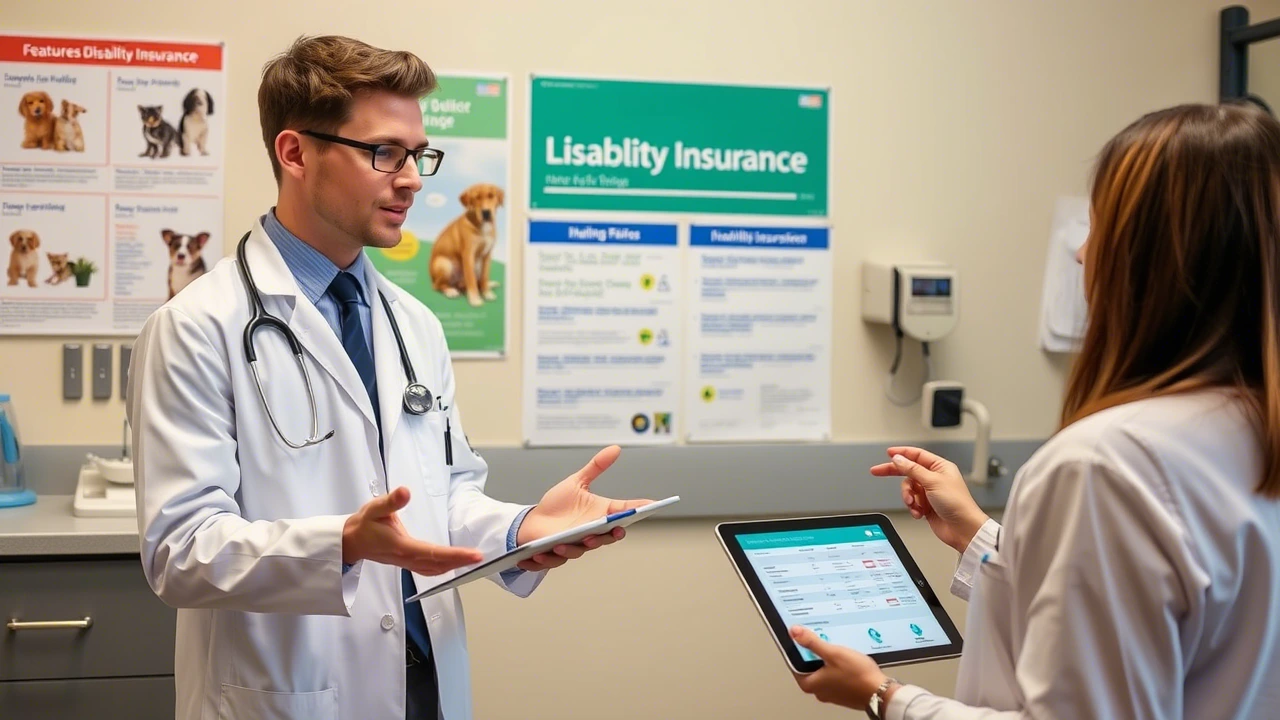Disability insurance for new veterinarians is a specialized policy that aims at covering their income in case they are unable to work due to an illness or an injury. This insurance offers occupation-specific benefits that are relevant to the physical and clinical demands of veterinary practice, maintaining coverage during disability. Here are a few features of disability insurance for recently graduated veterinarians:
Coverage for Disability and Income Disruption
Disability insurance for new veterinarians often covers total and partial disability. Total disability coverage pays out when a veterinarian is unable to perform their duties in any capacity. Partial disability coverage supports those who can still work but with some restrictions. Partial disability coverage applies when veterinarians work fewer hours because of their disability. For new veterinarians, this feature allows them to take time to recover and still be involved in the practice without compromising their income security.
Residual disability benefits provide a more structured approach when a veterinarian is able to return to work but is earning less than before. These benefits are activated when the loss in income is a result from the medical condition that has given rise to the disability claim. A new veterinarian who is working part-time during the recovery period might earn less. Residual benefits assist in filling that gap by confirming that there is a financial continuity during the recovery period.
Occupation-Specific Coverage
Disability insurance for new veterinarians evaluates the ability of the expert to perform the basic tasks of a veterinarian after they have had a procedure done on them or are recovering from an illness. This policy applies if the veterinarian is not able to execute daily tasks like surgeries, diagnosing animals, administering treatments, or managing clinical processes. When recovering, a veterinarian can find a job that does not involve the use of their veterinary skills and knowledge. The insurance takes such distinctions into account.
Built-In Future Insurability Options
Veterinarians may receive a raise in their income as they advance in their careers. Disability insurance for recently graduated veterinarians has built-in future insurability options that enable policyholders to increase coverage. An increase in coverage may be based on the growth of their earnings without having to go through medical examinations.
This feature accommodates expected career progression from initial practice to specialization or ownership. For new veterinarians, the opportunity to increase coverage without re-evaluation supports a long-term approach to career security. The future increase options are consistent with steps like the completion of residency, joining a large practice, or expanding additional clinical responsibilities.
Return-to-Work and Waiting Periods Support
Rehabilitation support in disability insurance for veterinarians focuses on assisting the insured to return to work efficiently. Rehabilitation support may include physical therapy, vocational support, or ergonomic assessment based on the type of disability. The provision of return-to-work assistance promotes continuity of care for animal patients while allowing the experts to reengage with the practice in a supported way. For a new professional, this can entail modifying tasks to fit their physical capacity during recovery.
Veterinary disability insurance can be customized in terms of the waiting period. This is the time between the occurrence of the disability and the start of the benefits, and the period of payments. This feature makes it possible to make changes to the policy depending on the veterinarian’s preference, practice, or expected recovery time. Some new veterinarians may need to avoid long waiting periods to safeguard their early income. Others may incorporate long waiting periods depending on their savings or practice.
Student Loan Protection Feature
Some new veterinarians graduate with a large amount of educational loans. One of the peculiarities of disability insurance in this field is the provision of student loan protection benefits. This option offers extra premiums for the purpose of making payments for student loans in case of a qualifying disability. Instead of using the general benefit payments for loans, this provision keeps the financial flow separate. It confirms that education expenses are paid even when the veterinarian is unable to work for a while.
Get Disability Insurance for Recently Graduated Veterinarians
Insurance that includes occupation-specific disability coverage, income protection, and other features are helpful for maintaining a long-term career. To have a reliable protection that corresponds to the veterinarian’s position, choose an insurance company that offers suitable options. Check the existing policies offered by the service providers who aim at supporting veterinary professionals.
